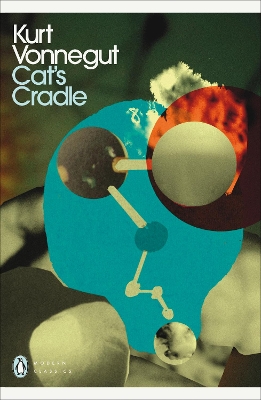“Live by the harmless untruths that make you brave and kind and healthy and happy.”As one of the best satirists of our time, Vonnegut juxtaposes science and religion in Cat's Cradle as our narrator Jonah (a likely allusion to Jonah and the whale) - also known as John - investigates the life of the Father of the atomic bomb while on his own journey towards the next man made destructive event in the form of ice-nine.
“Science is magic that works.”First published in 1963 during the Cold War and six years before the Moon Landing, Cat's Cradle takes a look at the destructive creations made by science, the ownership of these products of destruction, and the power relationship in government. The latter of which I find particularly interesting, especially given the context of the world in 1963, as the Republic of San Lorenzo ensures to always have an "enemy" for the people; the constant villification against religion while holding science to be paramount, and the irony is not lost on the reader when the end comes, as it often does, from scientific discovery.
This is classic Vonnegut with an interesting and unconventional narrative style that readers will either love or hate. While the storytelling and exposition is linear, I think that some readers will struggle for the first 100 pages. I promise that the exposition and seemingly loose threads at the start all do tie together.
Blog | Twitter | Pinterest
